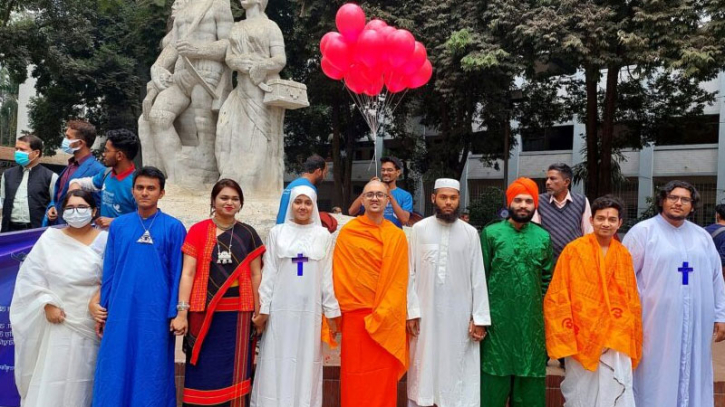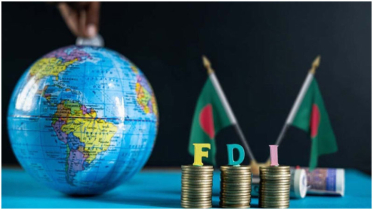Is Bangladesh living up to its promise of religious harmony

Bangladesh is a compelling example of interfaith harmony in a world increasingly polarized by religious strife. The country, with its rich tapestry of diverse religious communities, has historically embraced coexistence among Muslims, Hindus, Buddhists, and Christians. This commitment to unity is not merely a cultural artifact; it is woven into the very fabric of the nation’s identity and governance.
Recent events, however, have tested this harmony. The arrest of Chinmoy Krishna Das, a monk associated with the International Society for Krishna Consciousness (ISKCON), has sparked significant unrest within the Hindu community. Accusations of sedition against him have led to protests and heightened tensions, with over 200 reported attacks on Hindu temples and homes since August 2024. These incidents raise urgent questions about the safety and rights of minority communities in Bangladesh.
Bangladesh always focuses on collective progress among people of all faiths. The country has implemented policies to protect minority rights, including financial support for religious and cultural activities across different communities. The interim government reiterated its position to uphold religious harmony, emphasizing that Bangladesh serves as a model for peaceful coexistence on the global stage. The statement can be evident with a recent survey carried out by Voice of America (VOA) which showed that the majority of the people (64.1 per cent of the respondents) in Bangladesh believe that the interim government is providing more security to the religious and ethnic minorities than the last government.
Despite these efforts, challenges persist. The current government faces criticism for its handling of incidents involving minority groups, particularly in light of claims that ISKCON has been unfairly labeled as a radical organization. The Dhaka High Court recently declined to impose a ban on ISKCON’s activities after being informed that necessary actions had already been taken by the government to maintain law and order. This legal stance underscores the delicate balance between ensuring security and upholding the rights of all citizens to practice their faith freely.
Bangladesh’s constitution enshrines secularism and guarantees equal rights for all religions; however, the reality often diverges from these ideals. While there are significant strides in promoting interfaith dialogue and tolerance, isolated incidents of violence against minorities remind us that vigilance is essential. The recent unrest following Das’s arrest illustrates how quickly tensions can escalate if not addressed proactively.
The government recognizes various laws aimed at protecting minority rights. The Constitution affirms that every citizen has the right to profess, practice, or propagate any religion without discrimination. Additionally, international commitments such as the International Covenant on Civil and Political Rights (ICCPR) obligate Bangladesh to ensure that individuals can enjoy their cultural and religious identities without fear of persecution. However, despite these legal frameworks, enforcement remains inconsistent. Human rights organizations have reported numerous instances where attacks against minorities go unpunished or are inadequately addressed by law enforcement agencies. For example, between 2013 and 2021 alone, Hindu leaders documented over 3,600 attacks on their community, often linked to disputes over land or political motivations rather than genuine religious differences.
In response to growing unrest and calls for stronger protections for minorities, there have been demands for establishing a dedicated ministry for minority affairs in Bangladesh. Advocates argue that such a ministry would provide a formal mechanism to address the unique challenges faced by minority communities and ensure their voices are heard in national discourse. Moreover, initiatives like the Vested Property Return Act of 2013 aim to return properties confiscated from Hindus during previous regimes; however, many claim these measures have not been effectively implemented. The act was intended to rectify injustices stemming from historical discrimination but has faced bureaucratic hurdles that prevent its successful execution.
Despite these challenges, instances of communal cooperation continue to shine through. Major religious festivals such as Eid, Durga Puja, Christmas, and Buddha Purnima are celebrated with enthusiasm across communities, fostering a shared national identity. Such events highlight the potential for unity amidst diversity and serve as reminders that many Bangladeshis still value co-existence over division. The government’s commitment to protecting minority rights remains crucial in this context. Initiatives aimed at fostering interfaith dialogue and cultural exchange are essential to maintaining social cohesion. Civil society organizations play a pivotal role in promoting peace among communities and addressing issues related to misinformation that can incite violence.
Internationally, Bangladesh has reaffirmed its commitment to protecting minority rights at forums such as the United Nations (UN). Ambassador Tareq Md Ariful Islam emphasized that ensuring safety for every citizen—including those from minority communities—is a cornerstone of governance in Bangladesh. He noted that despite recent tensions attributed to political factors rather than sectarianism, the government remains vigilant in its efforts to maintain religious harmony.
As Bangladesh navigates these complex dynamics under interim leadership following political upheaval, it is imperative for all stakeholders—government officials, religious leaders, and civil society—to reaffirm their commitment to preserving interfaith harmony. The historical legacy of coexistence must be upheld through proactive measures that protect minority rights while promoting dialogue among different faiths.
In conclusion, Bangladesh’s journey toward maintaining its reputation as a beacon of religious harmony requires ongoing effort and dedication from all sectors of society. By fostering an environment where every citizen feels safe and respected regardless of their faith, Bangladesh can continue to serve as an example of tolerance and coexistence in an increasingly fragmented world. The path forward involves not only addressing immediate concerns but also laying down a framework for long-term interfaith dialogue and cooperation—ensuring that all communities can thrive together in harmony.
Writer: Tanim Jasim, Assistant Professor, Department of Bangla, University of Dhaka, Bangladesh
Source: Pressenza
.png)




